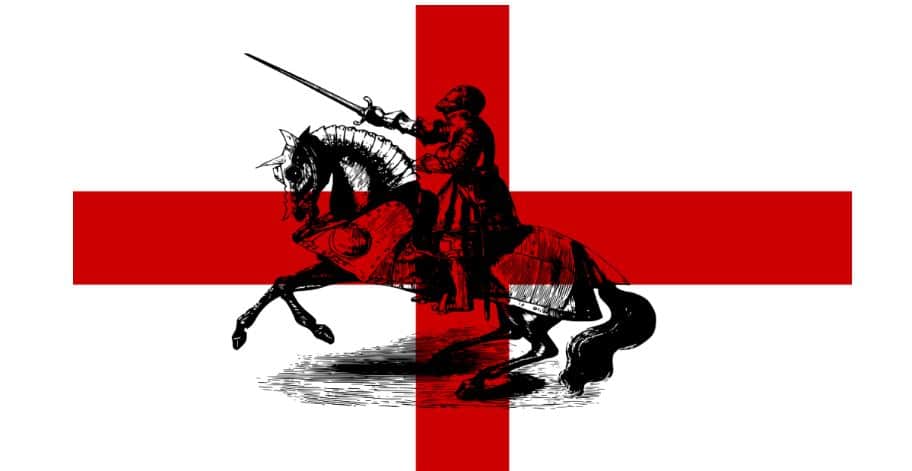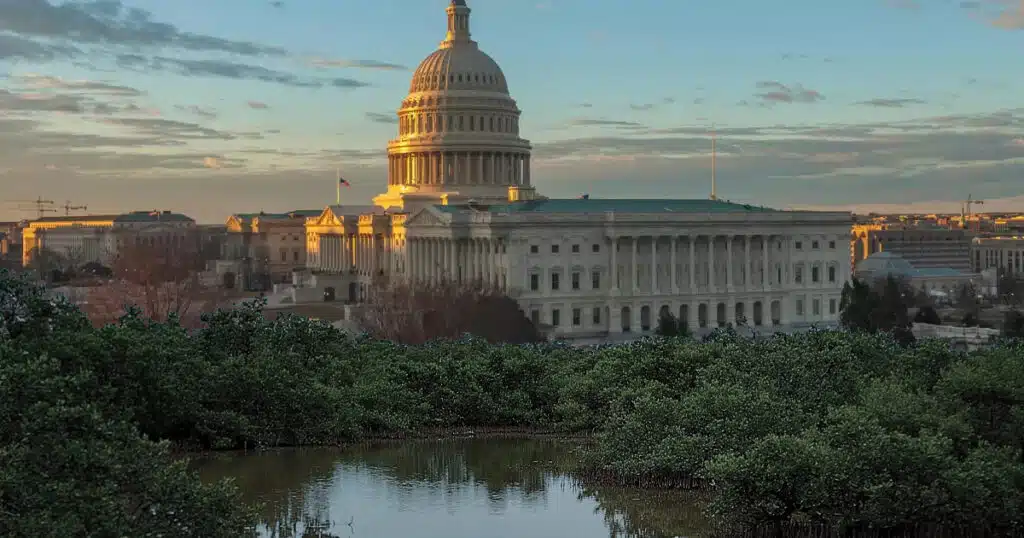
AMERICAN FRONTIER: St. George Slays the Dragon, Becomes City of Its Own
On April 26, 2024 the Louisiana Supreme Court confirmed by a 4-3 vote that St. George will indeed be incorporated as the state’s newest city. Instantly, it will be the fifth largest city in the Southern state with 86,000 residents.
“[Husband] and I are now residents of the new city of St. George!!!” said someone close to the decade-long struggle. “Long fight but we won!!! I have a feeling this phenomenon will grow across the country.”
Several Hayride writers have tossed in their thoughts on this exciting story, and I too find it intriguing and important, especially since it will now continue work on creating the St. George Independent School District. Admittedly, however, when I found out the news on Friday, my mind did not go as much to politics as it went to something I wonder if many new St. George residents realize.
My thoughts went to religion. St. George is a city now because it had to slay many a dragon, a part of the true St. George story many of us know.
RELATED ARTICLES
RIALS: The Incorporation of St. George – Establishing A Pacesetter City
MCKAY: Thoughts On The Beginning Of The St. George Era
SADOW: St. George Win Isolated, but Might Make Waves
MCKAY: St. George Finally Slew the Dragon: Folks in the Louisiana town have embarked on a quest to defeat weaponized government failure by simply the power away.
Even now, St. George will have to face dragons. One in particular is the diabolical charge of “racism,” a pejorative we know all too well here in the US, which is a blatant breakage of the Eighth Commandment, which forbids lies and deceptions of all kinds–perhaps a touch of catechism we should all start including in our thought processes.
This quick post is less political, however, although I do think it is important to consider it in the sense that so many of the political battles we face in America today are indeed evils–dragons–that must be vanquished with the power of Christ. What I’m putting out today probably means pretty little or maybe even nothing for some. But for faithful followers of religions like Traditional Roman Catholicism, Eastern Orthodox Christianity, and a smattering of Protestant sects, the date of St. George’s inception should not be overlooked.
It is a very likely that this date April 26 was not coincidental at all. It is very likely that God brought about what may seem like a miracle to some, after so much time and resistance had passed through the prayers and intercession of one of the most colorful saints in all of Christian history–St. George himself.
I don’t know if he was the inspiration for the name of the city. That is not my point today.
My point is to highlight the fact that the April 26 date fell on the Friday inside the Octave of St. George, an ancient custom (and current one, at least in the Traditional Catholic Rite I live by) that saw the faithful celebrate a feast day not for one day, but for eight days. In fact, today April 30 is the official Octave of St. George–the eighth day celebrating his feast.
Here is a very brief explanation of the theological reason for octaves just for this brief’s post’s purpose: Liturgical and Historical Notes on the Ancient Observance of Octaves. In particular with St. George, here is why he was of noted importance for some local churches and is now the patron saint of England, one of the Fourteen Holy Helpers, and one of the most prominent military saints.
The feast of St. George is found in the Ethiopian, Coptic, Syriac, and Latin liturgies. The ancient “Georgia” is named after him. He is renowned as the armed defender of the Church, one who carried the trophies of victory over the enemy.
Saint George (c. 275/281 – 23 April 303 AD) was a Greek who became an officer in the Roman army. His father was the Greek Gerondios from Cappadocia Asia Minor and his mother was from the city Lydda. Lydda was a Greek city in Palestine from the times of the conquest of Alexander the Great (333 BC). Saint George became an officer in the Roman army in the Guard of Diocletian.
The Emperor Diocletian had at first favored this illustrious son of a noble family of Cappadocia, but when St. George reproached the Emperor with his cruelty to Christians, he was cast into prison and put to death with such great cruelty that in the Eastern Liturgy he is styled the “Great Martyr.”
St. George is the patron saint of England. His cross forms the national flag of England, and features within the Union Flag of the United Kingdom, and other national flags containing the Union Flag, such as those of Australia and New Zealand. Traces of the cult of Saint George in England pre-date the Norman Conquest in the eleventh century; by the fourteenth century the saint had been declared both the patron saint and the protector of the royal family.
The good people of St. George, LA just went through a decade of dragons that I’m sure seemed insurmountable at times. Such is the way of the Christian life, such is the way of the cross. Is it likely that St. George, alive and well in heaven and able to intercede for the faithful, had a hand in the slaying of its worst? You better believe it. These stories that correspond so intimately with providential dates abound in Ancient Christendom, not to mention my own personal life. The saints are where we want to be. And St. George, who incidentally is the patron saint of a Catholic church and school a mere two miles down the road, has helped another St. George get to where it wants to be too.
(Here is the Traditional Mass in honor of St. George, celebrated every April 23. You’ll see that the pre-1969 Mass was incredibly different, and beautiful).
May everyone named directly or referenced indirectly ask forgiveness and do penance for their sins against America and God. I fight this information war in the spirit of justice and love for the innocent, but I have been reminded of the need for mercy and prayers for our enemies. I am a sinner in need of redemption as well, for my sins are many. In the words of Jesus Christ himself, Lord forgive us all, for we know not what we do.



